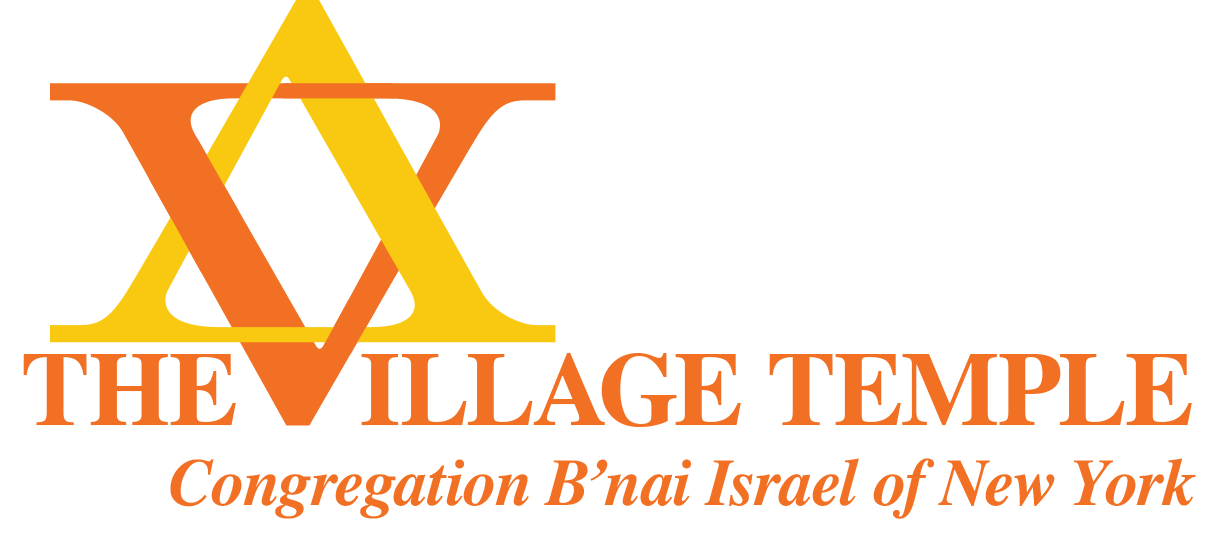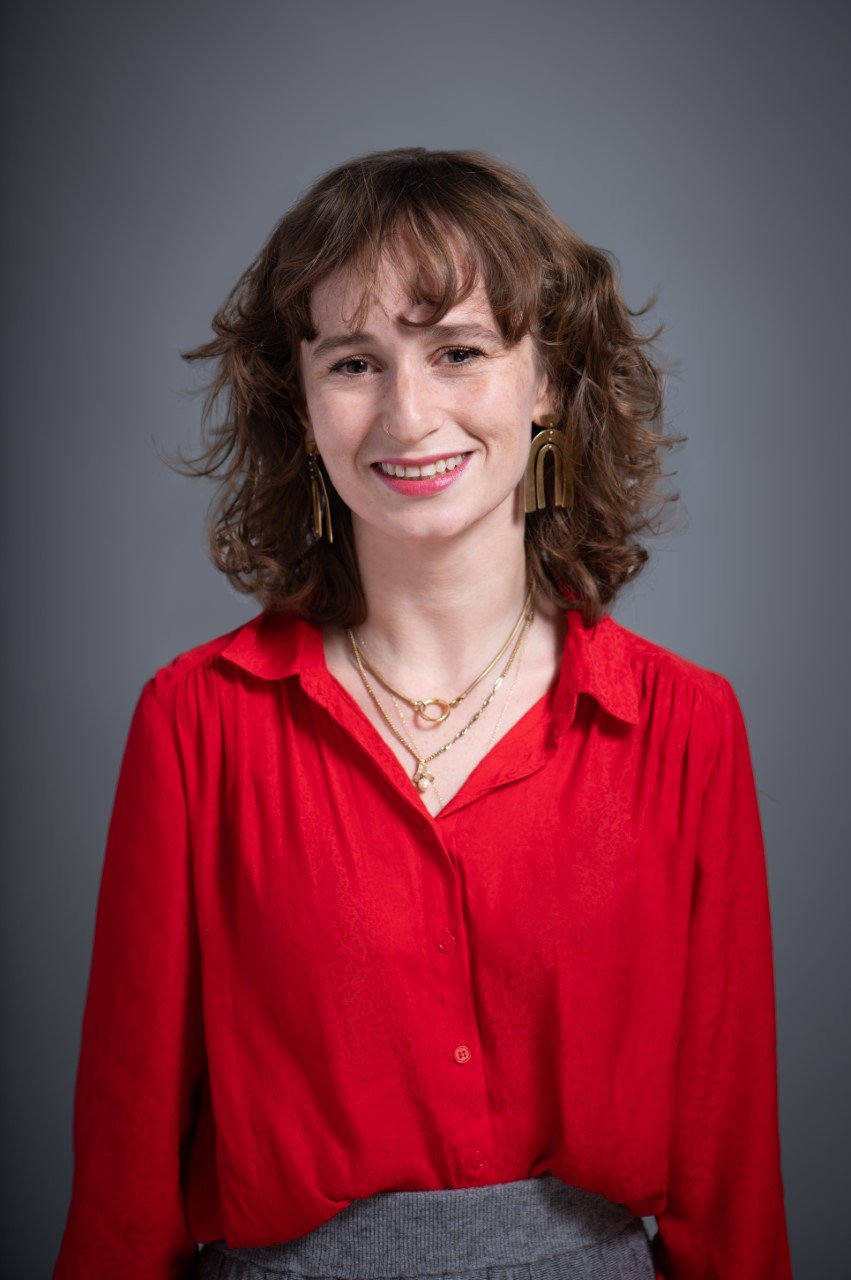Clergy
Rabbi Diana Fersko
Rabbi Fersko is proud to be the Senior Rabbi at The Village Temple in downtown Manhattan. Before joining The Village Temple, Rabbi Fersko served at New York City’s Stephen Wise Free Synagogue for seven years as Associate Rabbi.
She is the former National Vice President of the Women’s Rabbinic Network, representing over 700 female identified Rabbis across North America. Rabbi Fersko participated in the inaugural cohort of Shalom Hartman Institute’s Created Equal Fellowship. She received her rabbinic ordination from Hebrew Union College - Jewish Institute of Religion, where she also earned a master’s degree in Hebrew literature. She is a member of the CCAR and serves on the New York Board of Rabbis.
A prolific writer, Rabbi Fersko has been profiled in The New Yorker and quoted in The New York Times. Her first book, We Need to Talk about Antisemitism, will be released in August 2023.
Rabbi Fersko can be reached at rabbifersko@villagetemple.org.
Diana’s Story
So why did you become a rabbi, anyways?
For me, Judaism feels joyous. In my childhood home, we made every secular holiday a Jewish holiday - for Thanksgiving we ate latkes because we considered Thanksgiving to be more of a preview of Chanukah than anything else. For birthdays, we began the celebration the night before, wishing each other “Happy Erev Birthday” based on the custom of all Jewish holidays beginning in the evening (Erev). We sang Jewish songs, we ate Jewish food, we went to synagogue.
In college, when I gained language skills and could study Judaism more formally, I discovered that Judaism was hard, (like, really hard) and I loved that. It was complicated, challenging, and sometimes messy. To me, that resonated with my view of actual life. There were no easy answers but there were profound stories, characters, concepts, traditions, and beliefs.
After working in the Jewish non for profit sector, I decided to pursue the rabbinate. Why? Because it is the most challenging and fulfilling thing I could ever do. Because Jewish ideas have animated western civilization and still do. Because Jews are a living remnant of an ancient people and I want to help sustain our people. Because we are genocide survivors and rejects, refugees, and immigrants from all over the world. Because liberal Judaism strives to be egalitarian. Because Jews believe in making the world a better place through action. I became a rabbi because if I don’t help guard Jewish ideas, why should anyone else? Because being able to transmit sacred, ancient, yet acutely relevant ideas is the greatest honor of my life. That’s why I became a rabbi - because, for me to be myself, I had to.
And my “career” choice hasn’t disappointed. My responsibilities have been diverse, ranging from the most mundane jobs to the most elevated opportunities. I launched the largest, longest running millennial engagement program in New York City - Shabbat After Dark where hundreds of Jews gather on a monthly basis. I re-visioned a platform for conversion studies, growing our students from 3 learners to 30 in two years time. I envisioned and led a trip to Greece to support refugee relief raising funds and supplies to support women and unaccompanied minors that had fled war torn Syria. I oversaw an engagement center for Israeli families living in New York. I was tasked with finding a way to fill all 897 seats in the sanctuary of my synagogue (pro-tip, free food helps) on a random Friday night and I did - something that had only been achieved on the High Holidays.
But the most important aspect of my work are not the achievements - being with Jews in sickness and health, studying Torah, lifting my voice in prayer each week, exposing someone to a transformative Jewish teaching - these are the things that are personal to me. Everyday that I am able to fulfill a mitzvah, help a person in need, share the Jewish perspective on a current event, or study a Jewish text, is a good day. And for that, I am grateful.
FAQs
Most common questions/comments I receive:
Can a woman be a rabbi? Yes! Women in non-orthodox Judaism have been ordained since 1973. Living legend Rabbi Sally Priesand was the first, now there are over 700 female identified rabbis in North America.
Can rabbis have children? I once officiated a wedding while nine months pregnant. That answered a lot of questions all at once. Yes, rabbis can have children and it’s a mitzvah (commandment) to do so.
You look like my grandaughter: Thank you, she must be awesome.
What does Judaism say about...(fill in the blank): Judaism is a non-dogmatic religion. That means that while Judaism does have clear obligations, ideas, and practices, Judaism also offers several perspectives on any given topic. While there is clear consensus in some areas, others are much more diffuse. A single, quick and easy answer is not commonly the Jewish way.
Why did you decide to become a rabbi? I have a million answers for this great question because there are so many reasons. It is a life-long decision that involves considerable study, considerable debt, and the considerable commitment of your entire family. It is also the greatest job in the world. For one answer, read my story.
Cantor Emma Maier
Emma Rebecca Maier was ordained as a Cantor by the Hebrew Union College- Jewish Institute of Religion in May of 2023. Emma has aspired to be a cantor since she became a Bat Mitzvah. Born and raised in Los Angeles and educated at Jewish day schools, Emma was a member of Wilshire Boulevard Temple’s youth choir from elementary school through high school. She was also a member of HaZamir: The International Jewish High School Choir and the HaZamir Chamber Choir. These choirs and the mentors she has met along the way played a formative role in Emma’s Jewish and musical journey.
A graduate of Brandeis University with a Bachelor of Arts degree in Near Eastern and Judaic Studies (NEJS), Emma had the privilege of working as a cantorial soloist in Los Angeles at both Wilshire Boulevard Temple and Sinai Temple. Emma is currently honored to serve as the Cantor at The Village Temple in Manhattan. She was a B’nei Mitzvah tutor at Congregation Beth Elohim in Brooklyn, NY. Emma served as the Cantorial intern for two years at Congregation Kol Ami in White Plains, NY. Emma feels grateful for these varied opportunities to be in a spiritual, musical, and Jewish community.
Emma has also worked as an intern at the Shalom Hartman Institute in Jerusalem, studying and researching ritual and the unique relationship between American and Israeli Jewry. She is honored to have had the opportunity to perform in choirs and as a soloist at numerous venues — including Lincoln Center, the Dorothy Chandler Pavilion, the National Library of Israel, the Metropolitan Opera, St. Peter’s Basilica, and Carnegie Hall. Emma was an active member of the Worship Working Group (WWG) at HUC, a group that strives to shape and support the T’filah culture on the HUC campus and supports organizing t’filot for their annual Kallah Retreat.
Emma was the recipient of the Edwin and Susan Rabinowitz Malloy Endowed Scholarship (2021-2023), the Compassionate Cantor Prize by Reform Cantors of Chicago (2021-22), The Cleveland “Cantor’s” Prize (2021-22), the Scholarship for Remembrance of the Holocaust (2018- 21), Women of Reform Judaism Award (2019-20), St. Louis Jewish Music Circle Award (2020-21), and the Ezra Z.Shapiro Endowed Family Prize Near Eastern & Judaic Studies, Brandeis University (Class of ’17). Emma was also a participant in the Mandel Center for Jewish Education Fellowship for Hebrew School Teachers, Brandeis University (Fall/ Spring 2016-2017), as well as HUC-JIR’s Founders Fellowship (2016-17).
When Emma is not immersed in shul-related activities, Emma enjoys spending time in nature, walking through the farmer’s market, or working her monthly shift at the Park Slope Food Coop. She loves searching for treasures at vintage and thrift stores, cooking for friends, listening to and playing folk and americana music, and wandering around museums and bookstores. Emma continues to cultivate her meditation and yoga practices and aspires to share the beauty of the diverse, contemplative, mystical traditions she encounters through this spiritual journey. Emma is so grateful to have been ordained as a Cantor this past May alongside her HUC-JIR class of ’23 “family” and is honored to serve as the Cantor of the Village Temple. She looks forward to the opportunity to continue to serve our vibrant, diverse, ever-evolving, Jewish community.
Cantor Maier can be reached by calling the Temple office.


